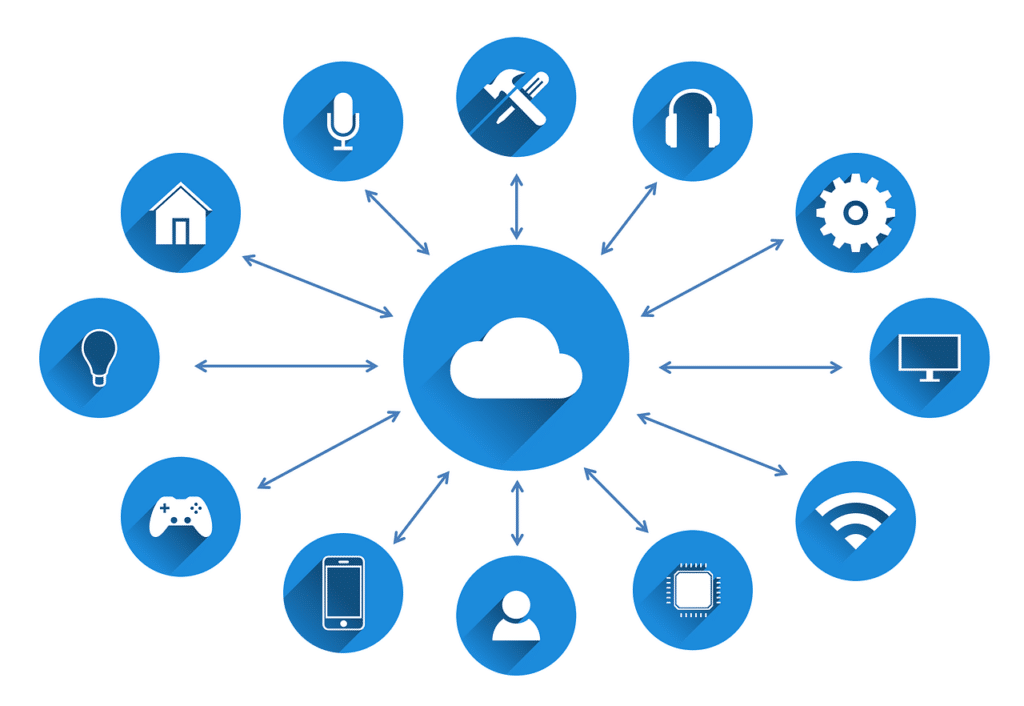Poised at the frontier where technology and business intersect, you’re about to unearth the potential of AI-powered automation. This exciting realm seamlessly interweaves artificial intelligence and machine learning into the fabric of business automation, birthing an era of “intelligent automation”. Such synergy has the capacity to breathe new life into industries, by taking over repetitive tasks that once consumed your employees’ productive hours. With AI setting the stage, analysts at IBM expect to witness an explosion in labor value, translating into billions of dollars, as early as 2022. Circling back to business automation, it’s a realm that boasts of versatility, accommodating business process automation (BPA), robotic process automation (RPA), and AI-powered automation under its umbrella. As you navigate through this fascinating journey, you’ll encounter myriad manifestations of business automation, ranging from basic and process automation to advanced and intelligent automation. Over time, you’ll find business automation evolving into a vital growth catalyst, expertly juggling the replacement of human labor with machine labor and streamlining operations. Moreover, when teamed with AI, automation rises to become a game-changer, refining your customer experiences, amplifying sales, optimally utilizing resources, and boosting customer satisfaction. Apart from a bird’s-eye view, we also throw spotlight on real-world applications of business automation, notably in automating email marketing, HR tasks, sales processes, and financial planning and accounting. As a cherry on the cake, IBM presents its avant-garde automation platform, embellished with AI-generated recommendations, analytics, and a user-centric toolkit of low-code tools. With a prime focus on efficiency, IBM’s Cloud Pak for Business Automation promises to curtail manual processes and spare your customers the ordeal of long-waiting durations. Fostering a time-efficient, streamlined, and progressive business landscape is no longer a distant dream. Prepare to embrace the future with AI-powered automation.
Understanding Business Automation
Definition of Business Automation
The concept of business automation refers to the application of technology to execute repetitive tasks or processes in a business where manual effort can be replaced. It is a strategic approach to automate activities and operations that are routine and consistent.
The Role of Business Automation in Modern Business
In the modern world, automation has become an integral part of the business landscape. It has the power to transform operations and impact all departments within an organization. Business automation allows your company to perform more tasks, quicker, and with fewer errors, allowing you to focus your attention on issues requiring human intervention.
Main Types of Business Automation: BPA, RPA, and AI-Powered Automation
Business automation ranges from simple repetitive tasks to advanced processes. Business Process Automation (BPA) includes the automation of complex business processes to streamline a business for simplicity, achieve digital transformation, increase service quality, improve service delivery, or contain costs. Robotic Process Automation (RPA) is another type of automation that uses software bots to execute repetitive tasks. Lastly, AI-Powered Automation, involves using artificial intelligence and machine learning systems to perform tasks that would typically require human intelligence.
The Evolution from Basic Automation to Intelligent Automation
Basic Automation: Features and Limitations
Basic automation is often the first step for businesses starting their automation journey. It involves automating repetitive tasks that don’t need a lot of cognitive involvement. As the name suggests, basic automation is simple in its scope, often limited to tasks like data entry and file transfers. The main limitations lie in the lack of adaptability and inability to deal with complex scenarios.
The Rise of Process Automation
The emergence of Process Automation was the next step in the evolution. Unlike basic automation, it could deal with more complex scenarios and requires lesser human intervention. Process Automation can significantly improve the efficiency and accuracy of business operations.
Advanced Automation: A Step Forward
Advanced automation transformed the business landscape with its ability to adapt based on the evolution of data and occurrences. It is capable of more complex decision-making tasks, like analyzing patterns and making recommendations.
Intelligent Automation: The Future of Business Processes
The pinnacle of the automation evolution is Intelligent Automation. This level of automation employs technologies like AI and Machine Learning to learn from past decisions and refine its future decisions accordingly. It is the future of business processes, increasing not just efficiency but also the accuracy of outcomes.

The Intersection of AI and Automation
Exploring the Concept of Intelligent Automation
Intelligent automation stands at the intersection of AI and automation. This powerful combination creates a system that can not only perform tasks but also learn from them, improving its future performances. This intelligent system can understand and process language, recognize and react to changes in data, make predictions using insights, and learn from past decisions to make smart choices.
How AI Enhances Automation
Artificial Intelligence enhances automation by integrating cognitive processes like learning and problem-solving. It employs machine learning algorithms to learn from historical data and experience, making the automation process more intelligent.
IBM’s Prediction on AI-Supported Automation
One of the world’s IT leaders, IBM, anticipates that AI-supported automation will generate billions of dollars in labor-value by 2022. This prediction signifies that smart automation will not only bolster productivity but also contribute significantly to the global economy.
Exploring the Benefits of AI-Powered Business Automation
Streamlining Operations through AI-Powered Automation
AI-Powered automation can streamline operations, making them more efficient. Tasks that were once tortuous and time-consuming are now manageable, reducing the time employees used to invest in routine tasks.
Eliminating Human Errors with Machine Labor
One of the main benefits of employing AI-Powered automation in businesses is the significant reduction, and at times, elimination of human errors. Humans are naturally prone to making mistakes, especially during mundane and monotonous tasks.
Promoting Business Growth through Intelligent Automation
AI-Powered business automation accelerates business growth by allowing employees to concentrate on higher-value tasks that require human attention. It automates mundane tasks and lets the human workforce focus on tasks like strategizing, decision-making, and customer satisfaction that can scale up the business.

Enhancing Customer Experience with AI-Powered Automation
Refining Customer Services with AI
AI-powered automation refines customer services by understanding customer behavior and drawing valuable insights. This leads to a more personalized customer experience.
Increasing Sales Through Intelligent Automation
Intelligent Automation can predict customer behavior and make recommendations accordingly. This data-driven approach empowers sales teams and could potentially lead to a significant increase in sales.
Improving Customer Satisfaction with Automated Processes
AI-Powered automation can foster customer satisfaction. Automated processes are quicker and more accurate, reducing client waiting times.
Specific Use Cases of AI in Business Automation
Automating Email Marketing with AI
Email marketing can also benefit from AI automation. AI can predict the best times to send emails, choose the most engaging subjects, and even personalize the content for each recipient.
AI in HR Tasks
AI can enhance HR tasks by taking over routine operations like screening resumes, scheduling interviews, and providing timely feedback. This could vastly improve the efficiency of these procedures.
Streamlining Sales Processes With AI
AI can streamline sales processes by generating qualified leads, predicting future sales trends, and providing actionable insights to improve sales strategies.
Financial Planning and Accounting Automation
AI-Powered automation in financial planning and accounting could simplify these complex operations. It could predict future financial trends, assist in budget planning, and ensure financial compliance.

IBM’s Contribution to AI-Powered Business Automation
The IBM Automation Platform
IBM Automation Platform is an integrated platform that is designed to help businesses design, build, and run intelligent automation applications. This platform provides features such as analytics, machine learning capabilities, and low-code tooling for efficient business operations.
Features of IBM Automation Platform
The IBM Automation Platform has several captivating features. It offers AI and machine learning capabilities to learn from data and refine the automation process. The platform provides analytics to garner deep insights into business operations.
IBM Cloud Pak for Business Automation: A Game Changer
IBM’s Cloud Pak for Business Automation takes automation a notch higher by aiming to reduce the manual processes and enhance customer experiences. It saves on time and accelerates business operations, making it a game-changer in the automation landscape.
Challenges and Pitfalls of AI-Powered Business Automation
Understanding the Potential Risks and Pitfalls
Despite the numerous benefits, AI-powered business automation also has its potential risks and pitfalls like over-automation and dependency on artificial intelligence. Businesses need to carefully select the processes to automate and understand the potential pitfalls of over-automation.
Strategizing to Overcome Automation Challenges
To overcome these challenges, businesses must strategize wisely. They must have a clear automation roadmap and a solid understanding of what they plan to automate and why.
Reimagining Change Management in Era of AI-Powered Automation
As with any major shift, implementing AI-powered automation requires a comprehensive change management plan. Employee buy-in and training are crucial for successful integration, as is continuous monitoring and adaptation as necessary.
Future of AI-Powered Business Automation
Predicting Future Trends of AI in Business Automation
AI in business automation is poised to go from strength to strength. As AI and machine learning technologies advance, we can expect them to be integrated in more robust and innovative ways to further streamline and enhance business processes.
Emerging Technologies in AI-Powered Automation
Emerging technologies like stronger AI algorithms, more powerful machine learning models, and advanced predictive analytics hold immense potential for AI-powered automation. As these technologies mature, they will inevitably revolutionize the landscape of business automation.
Creating Effective AI-Powered Automation Strategies
Designing the Blueprint for AI-Powered Automation
Designing an effective blueprint is the first step in implementing AI-powered automation strategies. This entails an understanding of the business processes, identifying bottlenecks, and deciding which processes will benefit the most from automation.
Choosing the Right AI Tools and Platforms
Choosing the right tools and platforms for AI automation is crucial. Businesses must be discerning and choose AI tools that suit their specific needs, whether it’s process automation, advanced analytics, or intelligent decision making.
Maintaining and Managing AI Automation Systems
Maintaining the AI automation systems is as important as implementing them. Regular monitoring to identify issues, and ongoing system updates to ensure it remains effective are paramount. An effectively managed AI automation system can significantly enhance efficiency and productivity in the long run.
From basic task automation to intelligent AI-driven automation, the journey has revolutionized the way businesses operate. And in this journey, the ultimate winners are businesses that can seamlessly weave in automation into their processes to maximize efficiency and deliver an unparalleled customer experience.
